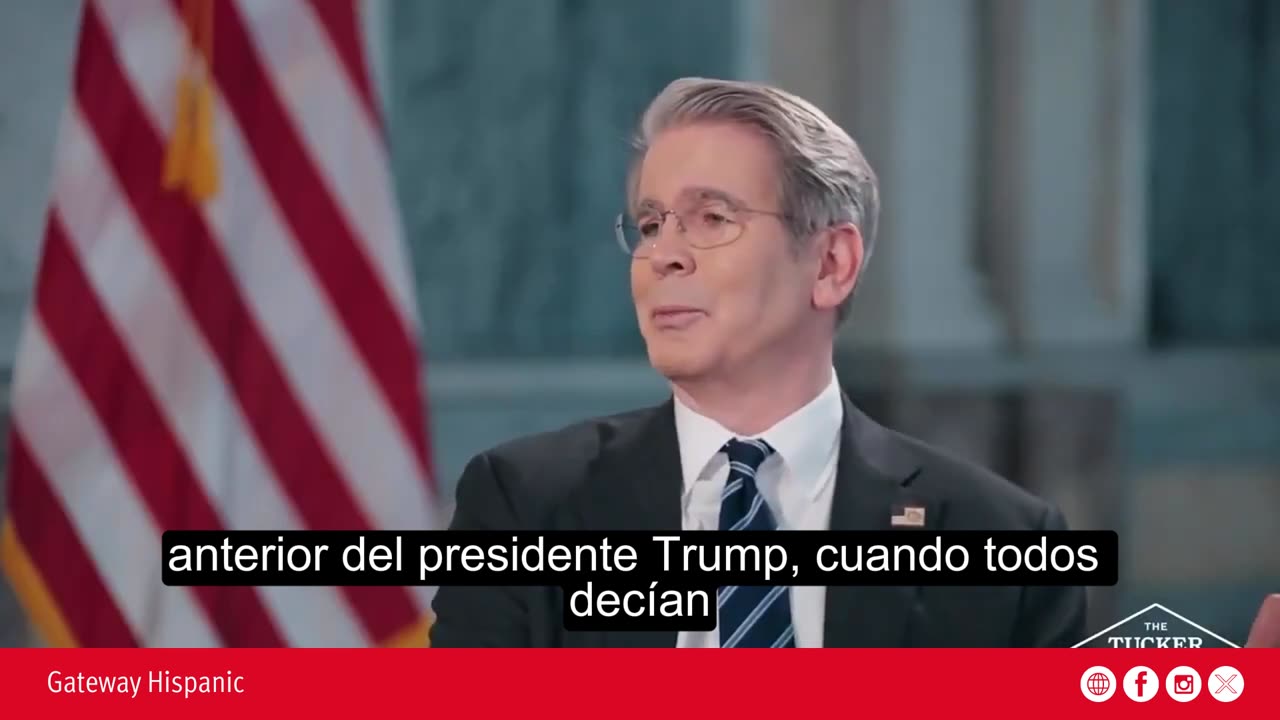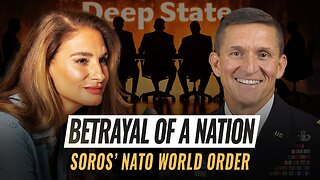Premium Only Content

Confidence in the Future: The Impact of Trump's Economic Policies
"People who expect that what happened yesterday will lead to a clearly better future in four years, is your sincere prediction that in, say, four years, we’ll say "really, it worked"?
I believe it’s going to work, and I know that what we were doing wasn’t working. So I think we have to try this, and I have a high degree of confidence that it’s going to work, and I have a very high level of confidence.
The good news is that we have the previous mandate of President Trump, when everyone said none of this was going to work. Oh, the tariffs on China were going to do this, they were going to cause inflation. They didn’t. This is going to happen... it’s going to be bad for American workers. Well, guess what?
Hourly American workers did better than the supervisors. The bottom 50% of households increased their net worth faster than the top 10% of households.
And look, I’m not happy with what’s happening in the market today, but the distribution of stocks among households: the top 10% of Americans own 88% of the stocks, 88% of the stock market. The next 40% own 12% of the stock market. The bottom 50% have debt. They have credit card bills, they rent their homes, they have car loans, and we have to give them relief.
That statistic from last year caught my attention. That’s the message, as a spectator. I thought, wow, OK."
The current economic policies of Donald Trump mainly focus on reducing the tax burden for businesses and individuals, with the aim of fostering economic growth, investment, and job creation. Trump has defended his "America First" approach, seeking to improve the competitiveness of the U.S. economy through the renegotiation of trade agreements and the imposition of tariffs on countries like China to reduce the trade deficit.
One of the key features of his economic policy was the 2017 tax reform, which significantly lowered corporate tax rates and, to a lesser extent, personal taxes. Additionally, Trump has promoted deregulation policies, intending to reduce government restrictions on businesses and stimulate investment.
Trump has also prioritized domestic energy production, seeking U.S. energy independence by boosting oil and gas production and supporting the coal industry. Internationally, his approach has been protectionist, seeking to renegotiate trade agreements to secure better terms for American workers and businesses.
In summary, Trump's economic policies are centered around growth through tax cuts, deregulation, renegotiating trade agreements, and strengthening domestic industry, with a clear focus on the competitiveness of the U.S. in the global economy.
-
 LIVE
LIVE
Precision Rifle Network
6 hours agoS4E27 Guns & Grub - Let's Talk About Gas Guns
60 watching -
 59:29
59:29
The Charlie Kirk Show
2 hours agoTHOUGHTCRIME Ep. 96 — The Great Flag Burning Debate
18.1K12 -
 57:56
57:56
The Mel K Show
1 hour agoMel K & General Mike Flynn | Betrayal of a Nation: Soros’ NATO World Order | 8-28-25
9.51K7 -
 LIVE
LIVE
Joker Effect
47 minutes agoInterviewing BEN JAMMINS! A personality with over 1 BILLION gif views. Let's give him a warm welcome
441 watching -
 11:37
11:37
Robbi On The Record
7 hours agoThe Devil is in the Branding..
5.51K7 -
 LIVE
LIVE
Savanah Hernandez
2 hours agoWhy Gen-Z Is So Radicalized Against Immigration
303 watching -
 LIVE
LIVE
megimu32
2 hours agoOTS: From A-List to MIA! 90s & 2000s Stars Who Vanished
92 watching -
 LIVE
LIVE
TinyPandaface
1 hour agoYour FACE Is A Gaming Channel! | Super Smash Bros w/ THE FELLAS!
46 watching -
 LIVE
LIVE
Flex011
3 hours ago $0.04 earnedMETAL GEAR SOLID : SNAKE EATER
17 watching -
 21:42
21:42
The Rad Factory
8 hours ago $0.11 earnedCrotch Rocket Swapped F1 car
1.96K1